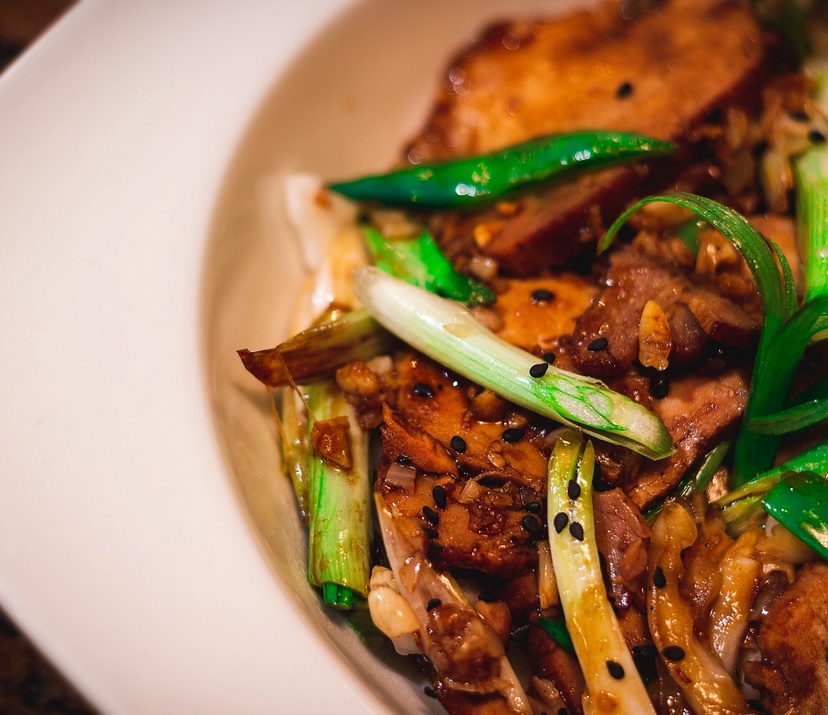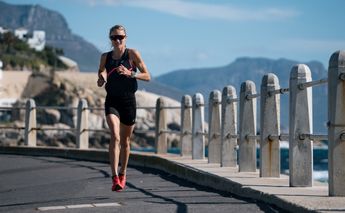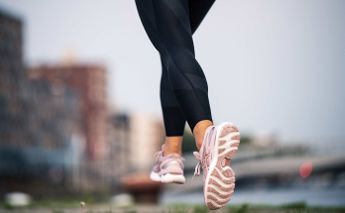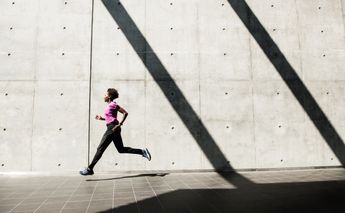When you eat after a workout or run matters just as much, if not more, than what
you eat. Exercise uses glycogen (stored carbohydrates) for energy and
causes micro tears in your muscles. If you take the right steps to
replenish your glycogen stores and start the recovery process for those
micro tears, you will improve as a runner.
So what are those right steps?
Your daily caloric needs vary based on your activity, along with your macronutrient requirements. The amount of carbohydrates should be adjusted based on your level of activity. (Learn how to calculate your calorie needs, here).
Before:
Eating before a workout will provide you with energy to go as long and as hard as you need to, especially if you will be training for longer than 30 minutes. Opt for a small, easily carb-based digestible snack 1-2 hours before your session. Banana, dried fruit such as raisins, and toast are all good options for a pre-workout snack.
Protein can be difficult to digest before a run, so save that for after your workout. Some runners find a bit of fat adds satiety to their pre-run snack, while others find it causes GI distress, so base whether you add peanut butter to your pre-run banana off of your individual needs.
After:
The best thing you can do to replenish your glycogen stores and
jumpstart muscle recovery is to eat within 60 minutes of completing your workout. The 60 minutes after a training session are often referred to as the “recovery
window,” because that is when your muscles are primed to absorb and
process carbohydrates into glycogen and protein for muscle repair.
Ideally, you want to eat a combination of carbohydrates and protein after a session. There’s no perfect post-exercise meal or snack—you could choose anything from oats with fruit and nuts to a chicken sandwich. If you are not very hungry after your session, opt for a small snack such as fruit and yogurt. The harder the workout, the more carbohydrates you will need, so be willing to adjust your post-run snack or meal based on the day’s workout.

Don't skimp on protein
You may get energy during a workout or run from carbohydrates and fat, but that doesn’t mean you should neglect protein in your diet. Much has been written about this subject over the past few years. And yes, protein is not just for bodybuilders; a recent study published in PLOS ONE concluded that 'endurance' athletes need to eat more protein than previously recommended. The researchers suggested 0.7 -0.8 grams of protein per pound of bodyweight (1.6-1.8 grams per kilogram of bodyweight).

Protein plays a vital role in the repair of muscles after a hard workout – including after a run. Protein also is essential for the health of bones, ligaments, and tendons, as a protein in the bones and joints (collagen) is broken down during endurance exercise. Without enough protein, your body cannot repair and support itself – which means you will be at higher risk for injury and not see the full adaptations from your workouts.
Ideally, you want to spread out your protein intake throughout the day. Some research indicates that 30 grams of protein is the maximum amount that can be synthesized in a single sitting. Instead of eating a majority of your protein at a single meal, aim to eat about 20-30 grams at each meal and 10-20 grams at your snacks.
The quality of protein matters. Reach for minimally processed sources of plant-based and/or animal protein such as nuts, Greek yogurt, legumes, eggs, lean meat, and seeds. If you choose protein powders, opt for natural ones with minimal ingredients such as whey and no added sugars.



